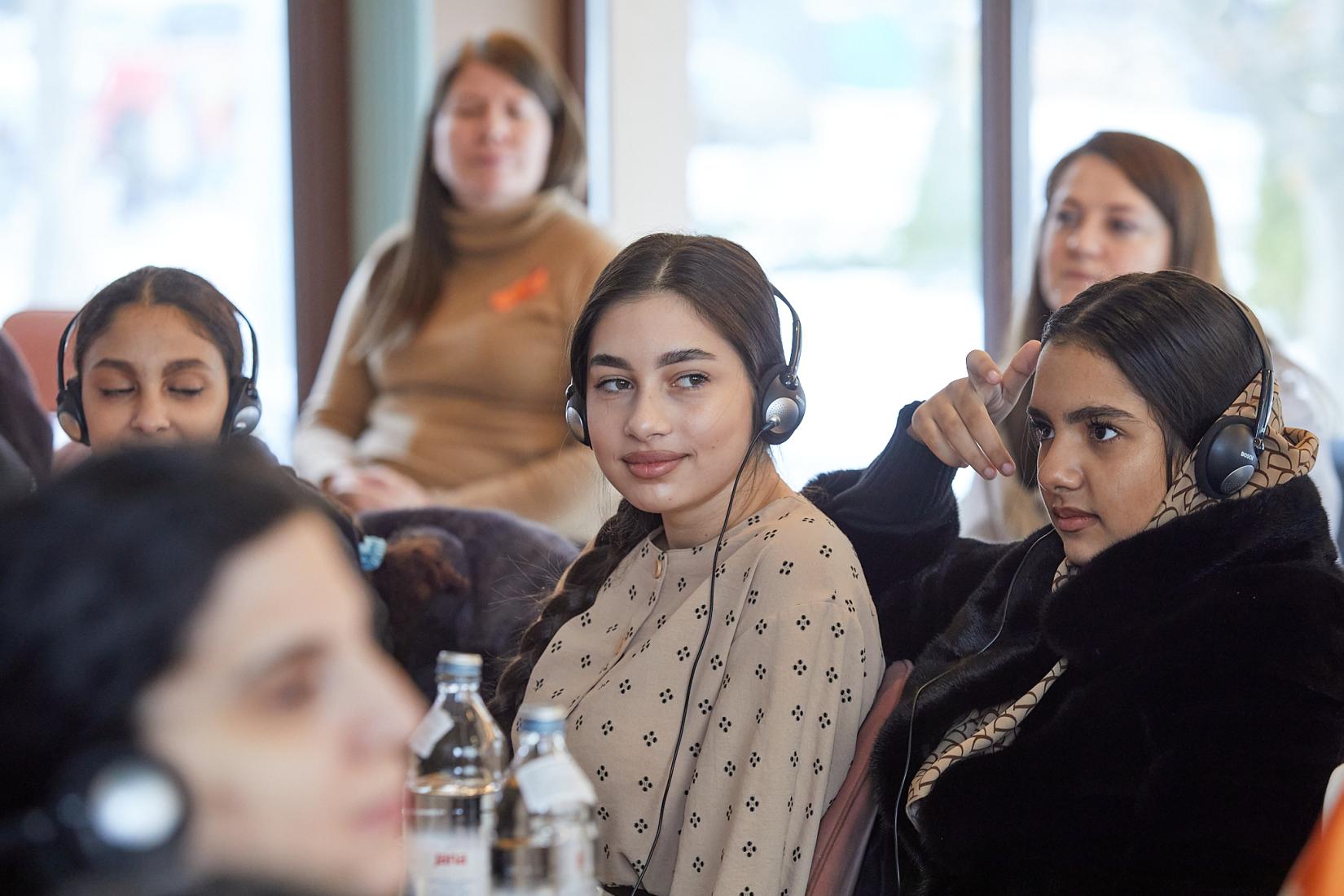Roma women speak up and vow to take action against gender-based violence
05 December 2023
- Roma women discussed gender-based violence from a legal standpoint as well as social norms within their community during an event organized by the Roma Women’s Platform of ROMNI, the Roma Awareness Foundation and UN Women Moldova, with the support of the Government of the United States.

Called "Speak up! Violence against girls and women has no ethnicity,” the event is yet another step in raising awareness that violence against women and girls is a human rights violation that can and must be addressed, including among the Roma community.
Participants were encouraged to speak up, report incidents of violence against girls and women and offer compassion towards other women in their community.
Women from different social groups continue to face violence. “We must no longer tolerate patriarchal approaches, but act together,” said Dominika Stojanoska, UN Women’s Country Representative in Moldova.
She explained that the purpose of this event, which was organized for the UN’s 16 Days of Activism Against Gender-Based Violence campaign, is to listen to Roma women and brainstorm how they can work together to end violence, which is a crime.
Robyn Prinz, Coordinator of Humanitarian and Refugee Support Programmes at the U.S. Embassy in the Republic of Moldova, emphasized that no one should have to live through abuse. “It is unacceptable for women to live in fear in their own home,” said Prinz.
Victorina Luca, President of the Roma Awareness Foundation, spoke to women about their rights and the existing legal instruments that can protect them from all forms of violence. Elena Sîrbu, President of the Roma Women's Platform for ROMNI, explained that the Roma community’s traditions and social norms do not tolerate degrading treatment against girls and women in any way. On the contrary, women have an important role in the community and must be active and speak up against violence, she said.
According to official reports, many Roma women encounter double discrimination – inside and outside the community. In some cases, women have to obey men and social norms within the community, and too often, they are unable to make their voices heard. Meanwhile, they face biases, denial of their fundamental rights and discrimination outside their community, including by state authorities.
In Moldova, approximately 40 women lose their lives to domestic violence every year. Recent data show that three out of four women (76 per cent) believe that violence against women is common, and two out of five women (40 per cent) say they have experienced physical and/or sexual violence at the hands of a partner or non-partner at least once since age 15. Research suggests that violence is higher among women from vulnerable groups—especially women with disabilities, Roma women and those of pre-retirement age—but reporting cases to the authorities is low among vulnerable groups in general.







